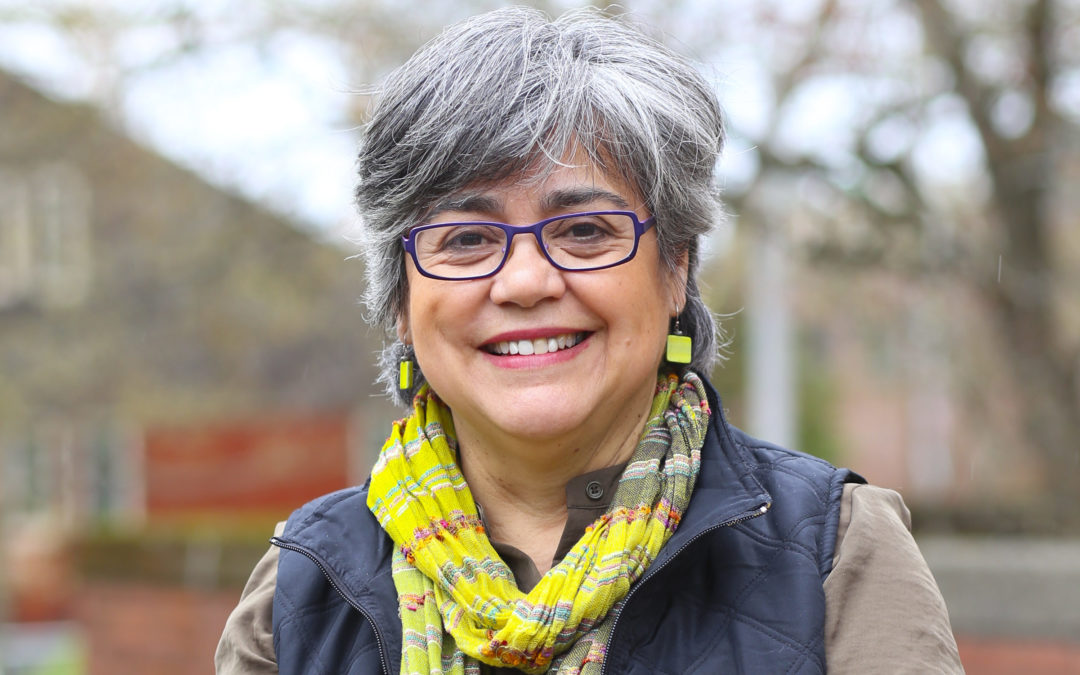 Like many minority nurses, Jackie F. Webb, DNP, FNP-BC, RN, associate professor at Linfield College School of Nursing in Portland, Oregon, had to overcome many challenges on her career path to becoming a family nurse practitioner.
Like many minority nurses, Jackie F. Webb, DNP, FNP-BC, RN, associate professor at Linfield College School of Nursing in Portland, Oregon, had to overcome many challenges on her career path to becoming a family nurse practitioner.
Webb is the daughter of immigrants to the United States and is a first-generation college graduate. Her parents worked hard to provide for their family and instilled the importance of going to college. It wasn’t until Webb got a job in a nursing home that she set her sights on becoming a nurse.
“I did not start out college knowing I wanted to be a nurse,” says Webb. “It was the experience of working in a nursing home and meeting an incredible nurse who exposed me to the challenges of nursing that convinced me to major in nursing. Looking back, I realize the time this nurse took to help me see the power and art of nursing, and her support is what gave me the belief I, too, could be a nurse.”
Webb initially thought she wanted to work as a critical care nurse, but soon realized she was most interested in preventing patients from ever needing a critical care unit.
“Working as a public health nurse opened my eyes to the challenges of seeing patients in their own homes, without fancy equipment but my stethoscope and a BP cuff, and my ability to really listen and take a thorough health history.”
This experience motivated Webb to go to graduate school and become a nurse practitioner where she learned how to manage chronic illnesses and how to incorporate cultural beliefs into the patient’s management plans. She has been a family nurse practitioner for more than 30 years.
Like many minority nurses, along the way Webb had several challenges to overcome.
“Not having role models, not having parents who knew how to navigate the world of college applications, finances, scholarships, etc. Additional challenges for me included not having good writing skills, not having a rich vocabulary, and not having experiences like so many of my friends. My parents didn’t take vacations, they didn’t belong to book clubs, they didn’t have dinner parties nor did they have their brothers and sisters or any family member close by. They both had to work long hours to afford a roof over our head. The isolation of being a first-generation immigrant was at times difficult.”
Webb believes that there are ways for colleges and universities to help immigrant and first-generation college students overcome the unique challenges they face.
“Colleges and universities who work with immigrant students and/or first-generation college students need to know that these students are for the most part willing to work harder than any other student population,” says Webb. “For some they see how hard their parents work to just keep food on the table, they don’t take anything for granted. These students are grateful for any type of assistance and will overcome amazing barriers to obtain their college degrees. Many of these students end up inspiring other students and take on challenges many students are fearful to take. Many students value their college community and will take on various leadership roles.”
So what advice would Webb offer to minority nursing students today? “I would tell them to value their personal stories,” says Webb. “Value your history and that of your family. Be proud of the hard work your family has gone through to get to where you are now. The passion, the self-reliance, and support students have will get them very far.
Webb also encourages minority students to reach out for support. “For many students of color they are the first to attend college. This is an incredible journey they are undertaking and they cannot do it alone,” says Webb. “It is so important that they find a mentor or advisor so they can feel comfortable asking how to navigate this new journey. Use every available resource so you are able to be successful. Don’t be afraid, embarrassed, or feel that asking for help is a sign of weakness. I believe it is absolutely the reverse: asking for help is a definite sign of strength as it shows you are ready to do the work.”
- Retirement Planning for Nurses - July 17, 2019
- How to Combat Nurse Burnout - April 9, 2019
- Are For-Profit Nursing Schools a Good Choice? - October 16, 2018



